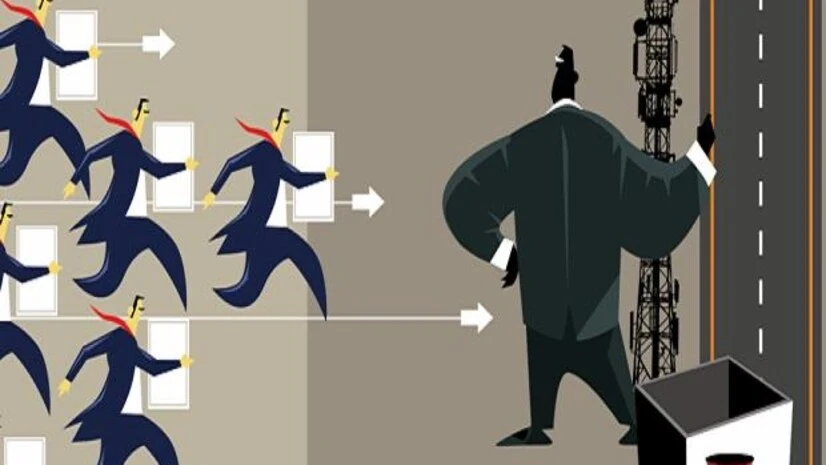I’ve started a personal blog that I’ll post every quarter or so, sharing topical learnings and observations from my perch managing investment fund and portfolio in India. Here’s my first instalment – feedback is always appreciated.
We in India are emerging out of a harrowing period when many tens of thousands of families in urban and rural India alike lost loved ones to Covid. The worst of the “second wave” seems to be behind us. Vaccination numbers are on the rise, and we all hope that our political leaders will rise above partisan bickering and be better prepared for the “third wave,” when it hits us.
The economic aftermath of Covid
Large parts of the nation including the core centres of economic activity are opening up in fits and starts. However, the MSME (Micro, Small and Medium Enterprises) sector has been mauled by Covid, and it will take substantial government support for them to get back on their feet. The Finance Minister, Ms. Nirmala Sitharaman, has just announced a slew of measures to assist Covid-hit sectors of the economy, including a USD $15B credit guarantee program. Unsurprisingly, jobs too have taken a big hit, particularly in the high physical touch sectors of the economy such as travel, tourism, retail, entertainment, etc. Household savings have been adversely impacted as was reported recently by RBI, India’s Central Bank.

Startups: A ray of hope
Amidst all this gloom, one sector of the economy that is witnessing a frenzy of activity is startup funding. As this article in TechCrunch states, India has created 14 unicorns already this year, up from 11 last year and only six in 2019. And it is not just late-stage funding, but seed investments too have witnessed a sharp jump. Not surprisingly, almost every funded company is tech-led. Whether a new generation of consumer content platforms, edu-tech, or B2B commerce and SME-tech, staggering amounts of capital is flowing into companies bringing digital technology to both consumers and businesses alike.
Neelkanth Mishra, India equity strategist at Credit Suisse and a respected observer of the Indian economy, has noted the increasing importance of private capital to the Indian economy. In a series of articles (here, here and here) he recently wrote for the Business Standard, Mishra argues that private capital is providing the resources for startups across sectors to grow and scale. Detailed research by his team identified over a 100 unicorns (private companies with valuation of over USD 1 Billion) in India. While this number is a lot higher for the US and China, the latter have many more listed companies with market capitalisation exceeding a billion. The US has 2,825 and China 2,126 such companies, whereas India has only 335. The unlisted space is thus far more important for India’s economic momentum.

Illustration By Binay Sinha
Mishra makes an interesting point about the composition of unicorns in the Indian context. In the developed economies with growth rates in the slow single-digits, disruptive technology led businesses can hope to command unicorn valuations. However, in India, with high secular growth predicted for the next two decades, there are unicorns being created in “bread and butter” sectors as well. Foreign risk capital is funding this growth, just as the advanced economies of Europe financed the growth of the US in the late 19th century.
Building the foundations for the long term
I have in the past talked about the importance of the “India Stack” (“Aadhaar” giving a digital identity to over a billion Indians, and the Unified Payments Interface (UPI), which has enabled India to leapfrog into the age of digital payments) in providing the critical technology plumbing for these new age businesses. A key enabler that has given life to this tech infrastructure is rapidly increasing tele-density. 85% of Indians have phones, 40% of them smartphones, and almost 700M Indians are connected to the Internet. All this would not have been possible without:
- Rapidly falling costs of mobile phones.
- Rural Electrification: Wires enter almost every Indian home now. There is no point owning a phone if it cannot be charged.
- Road network density: Repairing electrical equipment (wires, poles, transformers) would be difficult, if not impossible, without good roads. Roads are necessary not only for market linkages but for provisioning essential services.
So, while the immediate prospects for the Covid-hit Indian economy look challenging, the long-term fundamentals are sound and getting stronger. From another perspective, Covid has been to key sectors such as eCommerce, SME-tech and edu-tech, what Y2K was to Indian software (the need to change the year to a four-digit number in all software in a short span of time led to a large volume of work being shifted to India for the first time).
In closing, I would like to share with you an article by Manish Sabharwal (a corporate leader and keen observer of the Indian macroeconomy and corporate sector). Supporting Mishra’s thesis, he makes some additional interesting points about how changes in ownership structure and corporate governance are making Indian businesses stronger and enabling them to create more value for shareholders and the economy.

